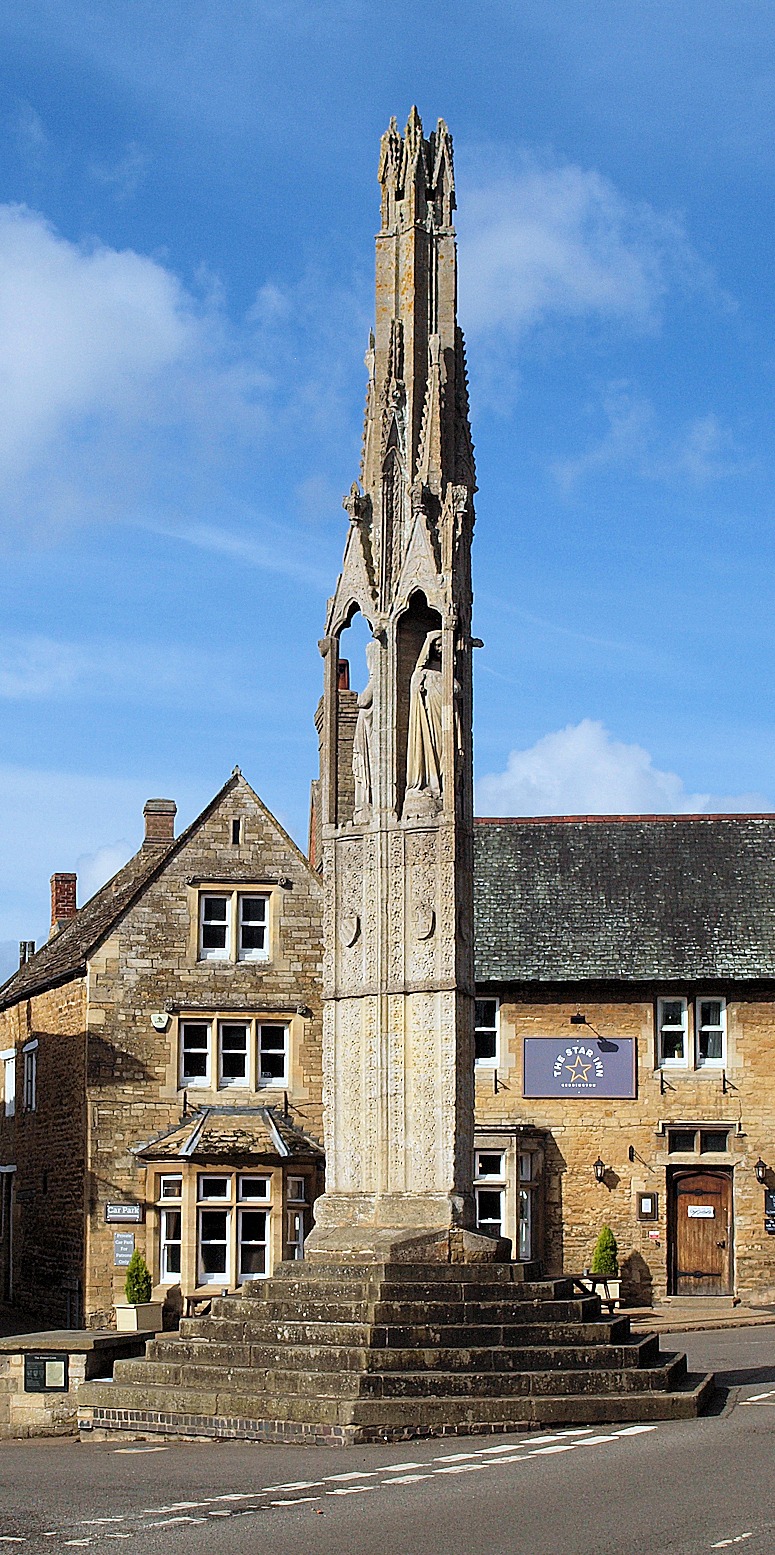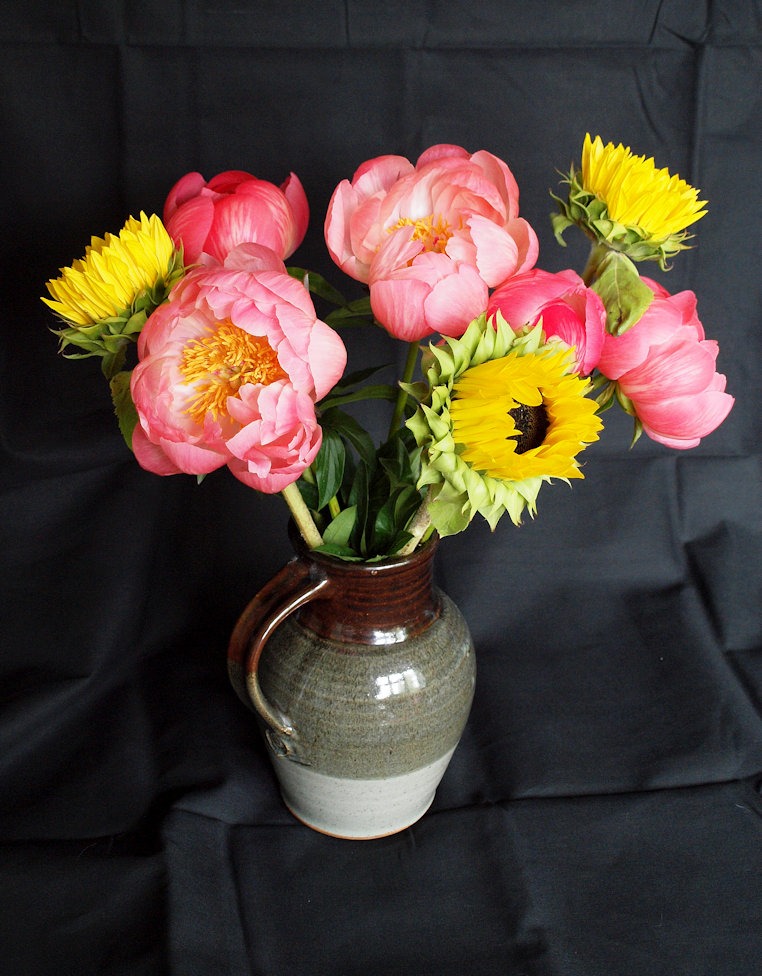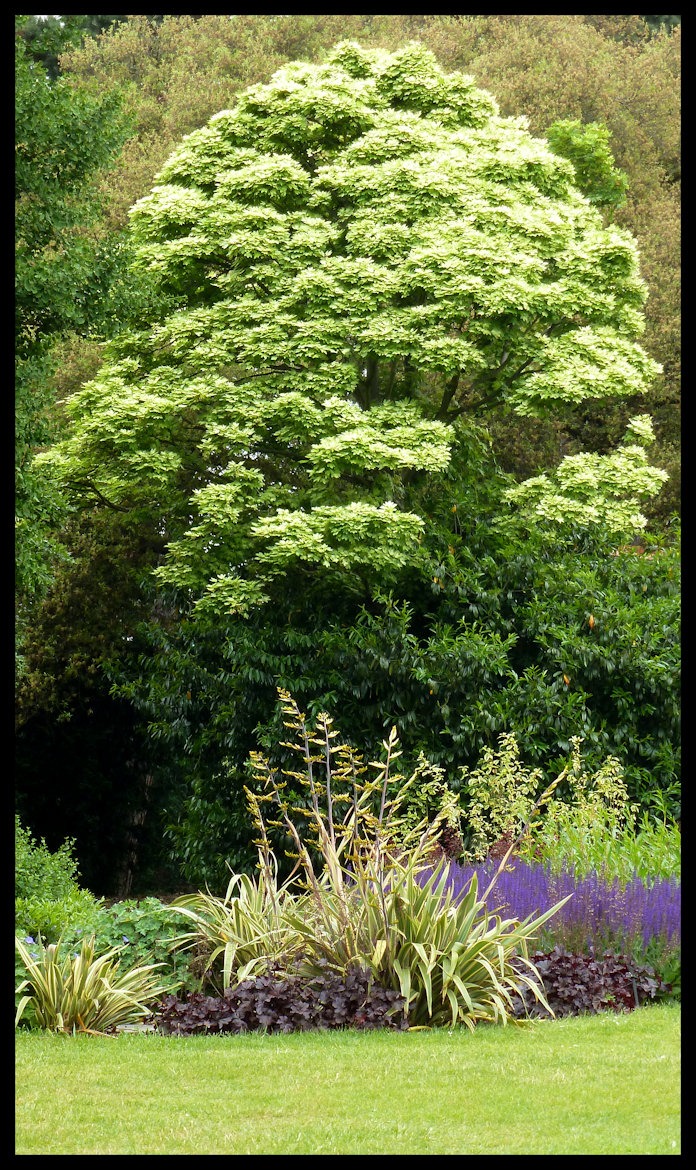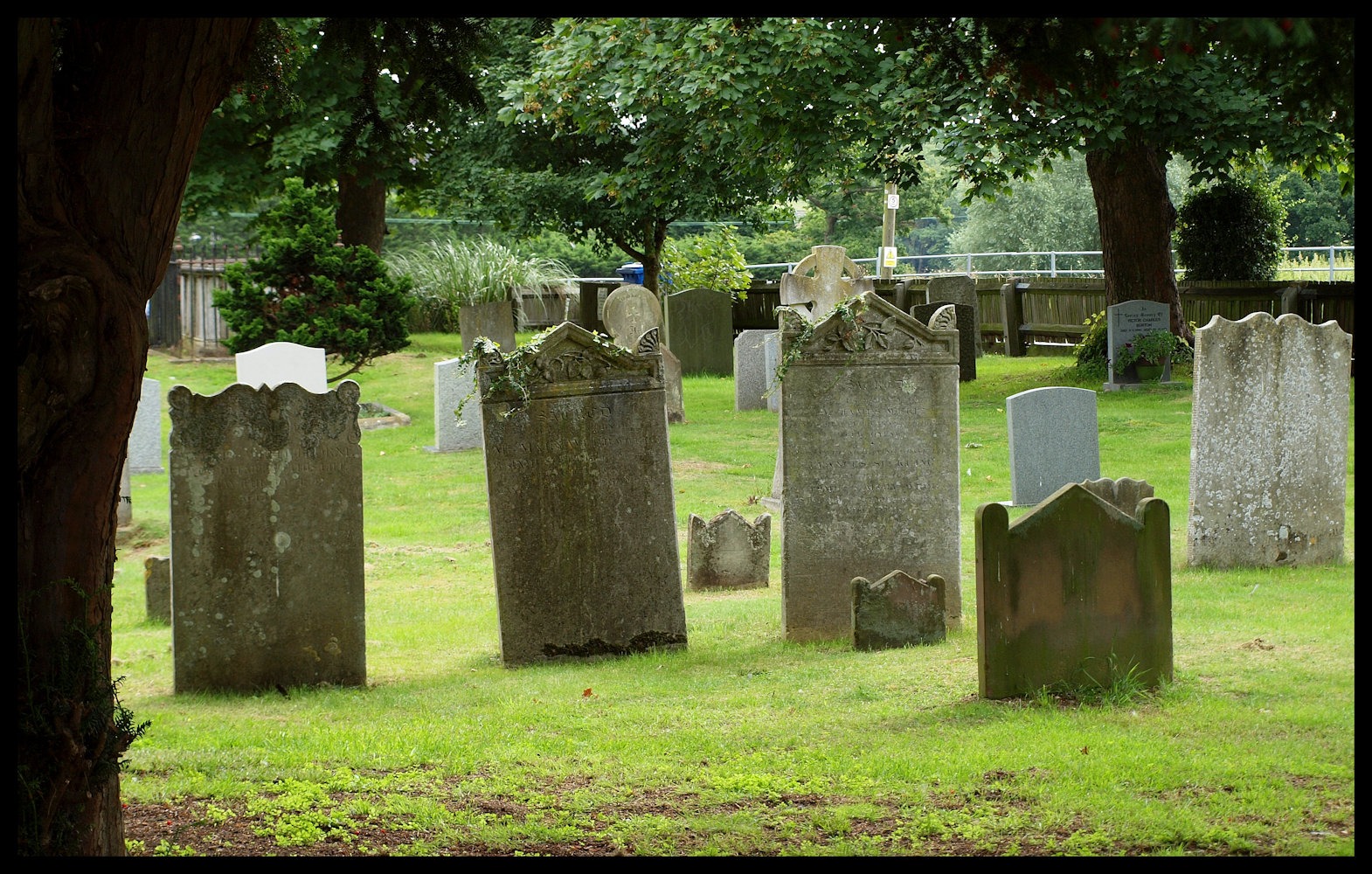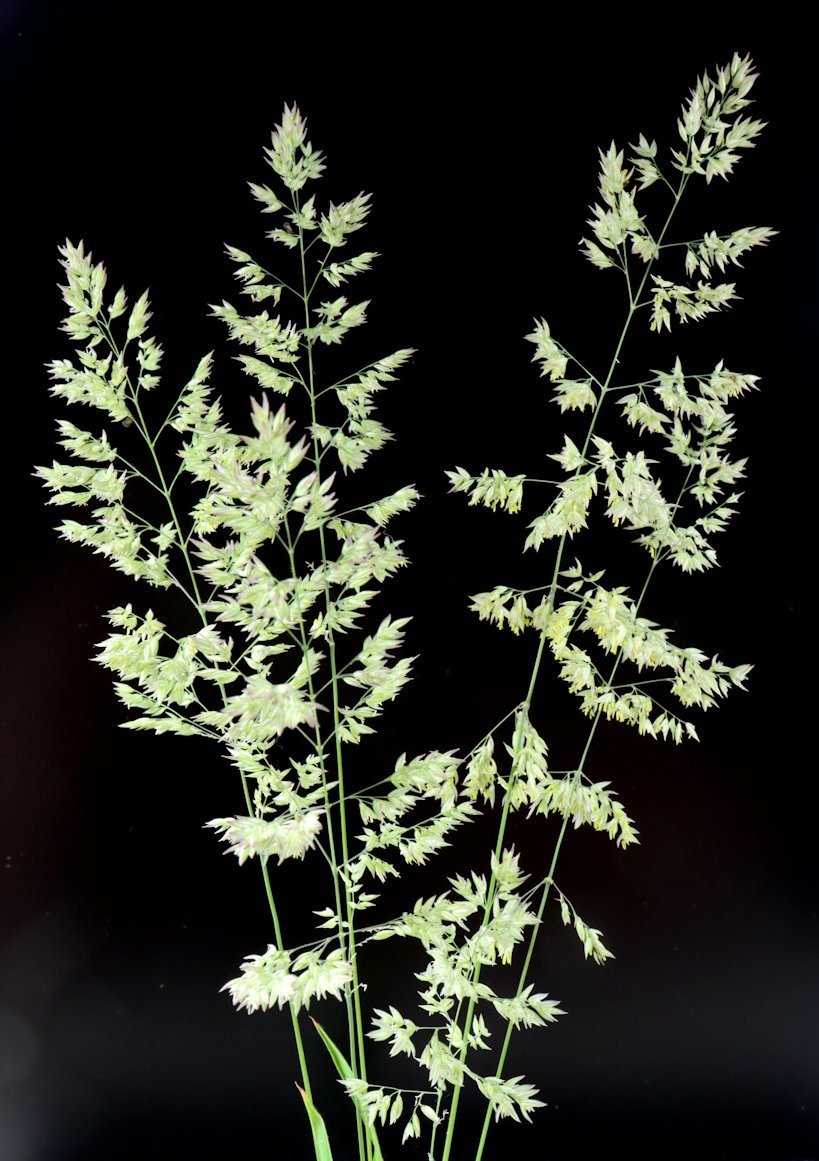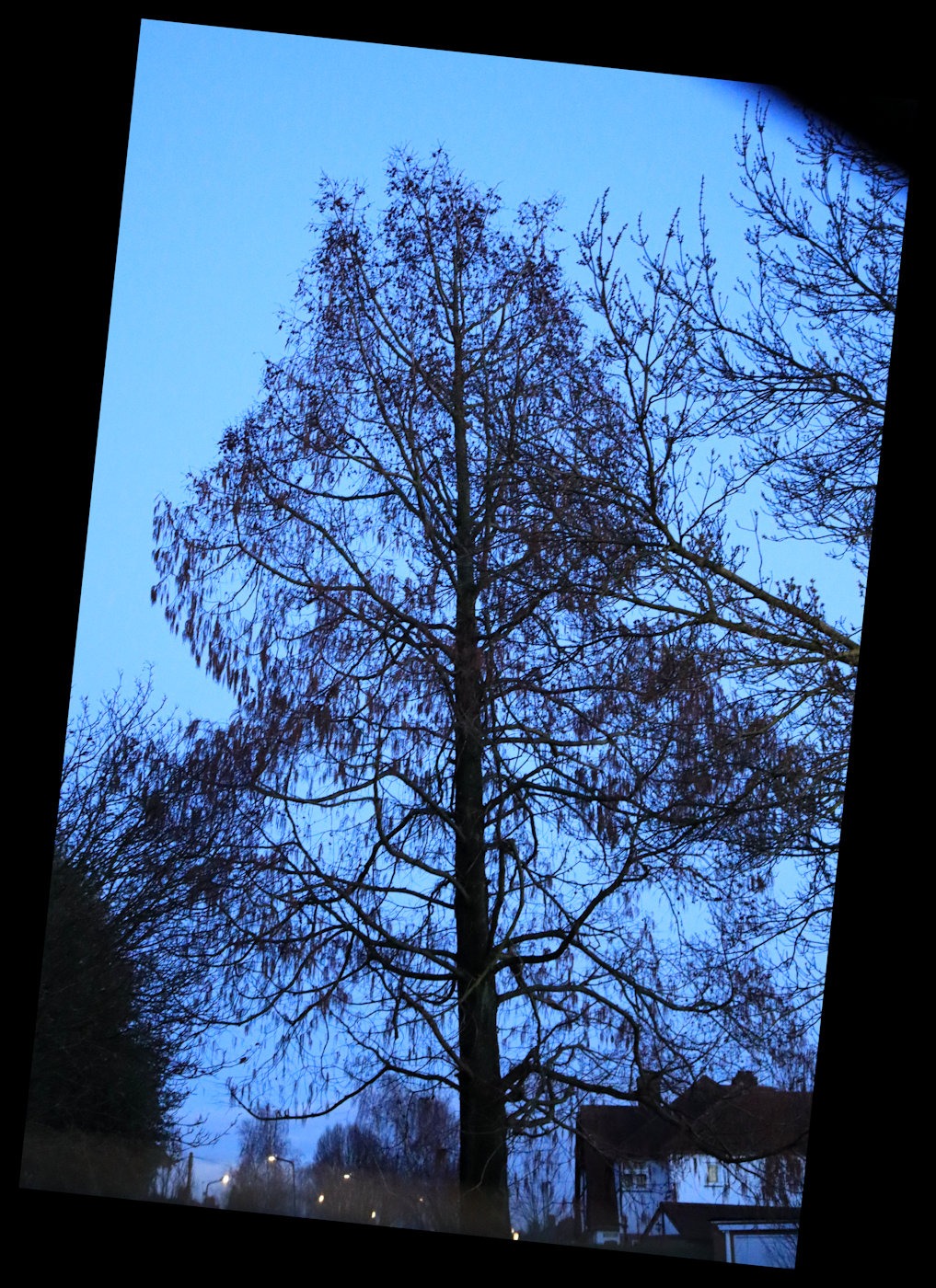And so to notes of things I didn’t otherwise blog about earlier in December.
Tuesday 2
Last Friday on the way home from the osteopath, I stopped at our local flower shop, to procure a large bouquet of chrysanthemums for N. They also had some large Phalaenopsis orchids; some white, some a slightly striped mauve. I indulged in in an orchid for myself! Last evening I looked at it on the bedroom windowsill in the light of my bedside lamp and was struck by the oblique lighting effect. So with my mobile to hand I grabbed a couple of photos.
 People think orchids are difficult, and have to be thrown out when they’ve finished flowering. But this is not true of Phalaenopsis. They just have to be treated the right, but simple, way. Although you may never achieve the floral magnificence which the commercial grower achieved, you can get them to repeat flower once or twice a year, for years. Orchids are fairly expensive, so don’t just throw that investment away after a few weeks.
People think orchids are difficult, and have to be thrown out when they’ve finished flowering. But this is not true of Phalaenopsis. They just have to be treated the right, but simple, way. Although you may never achieve the floral magnificence which the commercial grower achieved, you can get them to repeat flower once or twice a year, for years. Orchids are fairly expensive, so don’t just throw that investment away after a few weeks.
Wednesday 3
Cracked open the first bottle of 2024 Tavel (see https://zenmischief.com/2017/11/rose/ for my first post about Tavel). Verdict: really lovely and only a little behind the 2021, which for me was the best vintage ever.
Thursday 4
I managed to opt out of accompanying N to her hospital eye appointment – and by all accounts it’s as well I did as it would have been time wasted because she just got a round of boring tests. So I stayed extra long in the nice warm, comfortable bed, and then failed to do everything I needed to get done.
Friday 5
Gorgeous pink and apricot sunrise this morning.
Sunday 7
Its raining. It’s dull and dreary. It’s miserable. It’s December. And yet we still have roses trying to flower!
Monday 8
Eating lunch today and there appears a squirrel to sit two feet outside the window. What on earth is it carrying? Oh, the remains of an avocado (it’s obviously raided the compost bucket). And it sits there, quite nonchalantly, destroying the skin of this half avocado and throwing fragments everywhere – there can’t have been a lot of flesh left on it, but it was clearly worthwhile.
Wednesday 10
Phew! That was a couple of days slog getting cards and parcels organised and (mostly) away. So nice this morning to drop round to friends for pre-Christmas coffee and mince pies, take their presents, and relax.
Sunday 14
My trail cameras are driving me nuts. They’re set to take photos during darkness. The newest one will not take enough pictures; just a few during the evening and nothing after midnight. It works fine indoors, but not outside. The old one takes pictures OK, but fewer than I would expect, but enough to show the new one doesn’t work well. WTF is going on? Still one thing they produced this week was three foxes in the garden, up near the house; they looked as if one (at least) was an intruder on an established territory.
Monday 15
Last night there were two crane flies on the bedroom ceiling. Why? I know it is fairly mild, but it really isn’t the right time of year. They were obviously Tiger Craneflies (Nephrotoma spp.) from the almost unbelievable, and unexpected, colouring – clearly pretending to be a wasp! 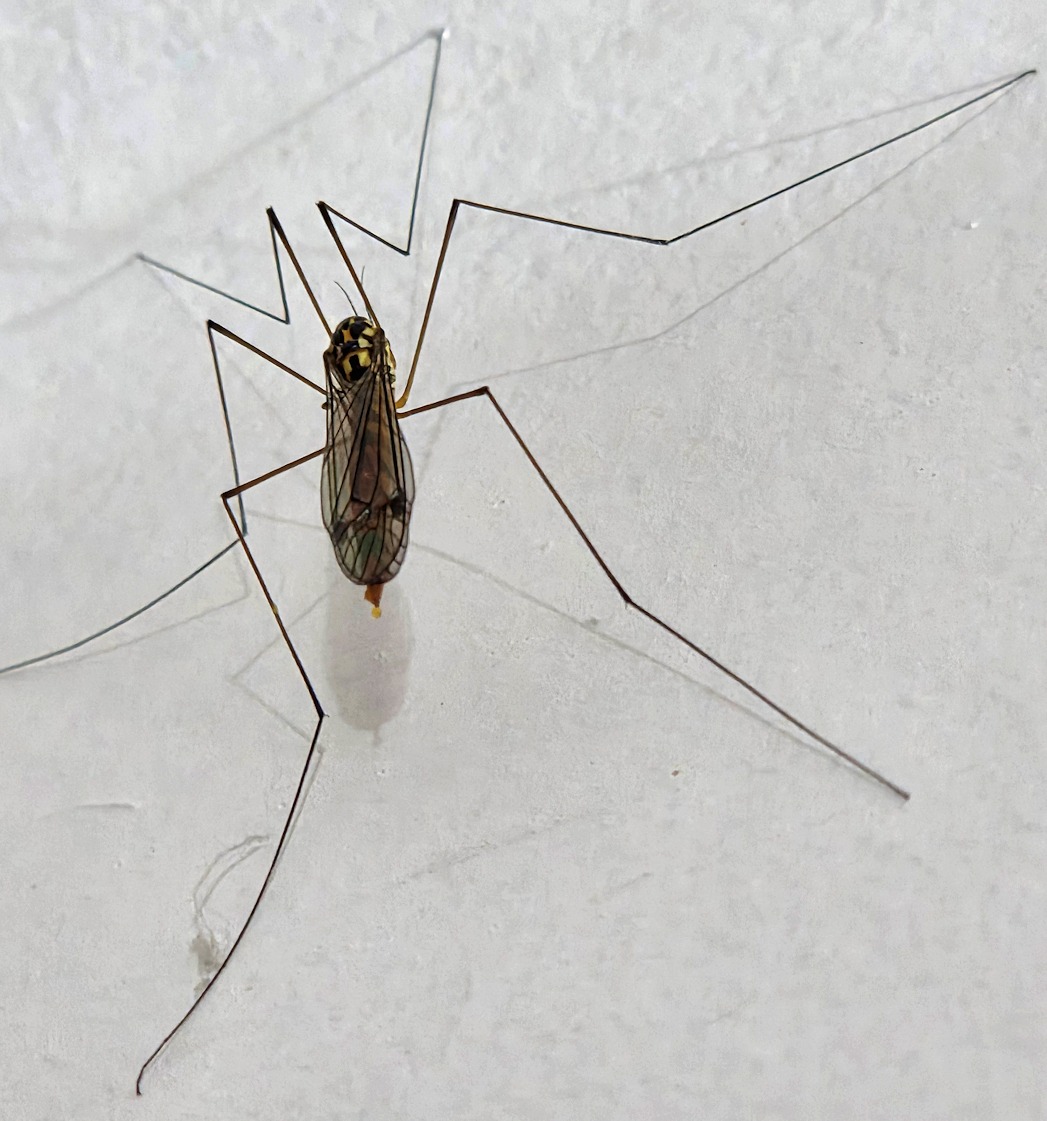
Wednesday 17
Weird pink fog! Very foggy at 04:00 and still foggy when I got up just before 08:00, which was roughly sunrise. Looking east the fog was distinctly pink, presumably due to scattered light from the rising sun. But a very odd effect.
PS. I was indeed right about the pink fog, see for instance this Guardian report.
Thursday 18
Today arrived two Postcrossing postcards. They completed my latest board and take my total to 500 cards received I under three years. 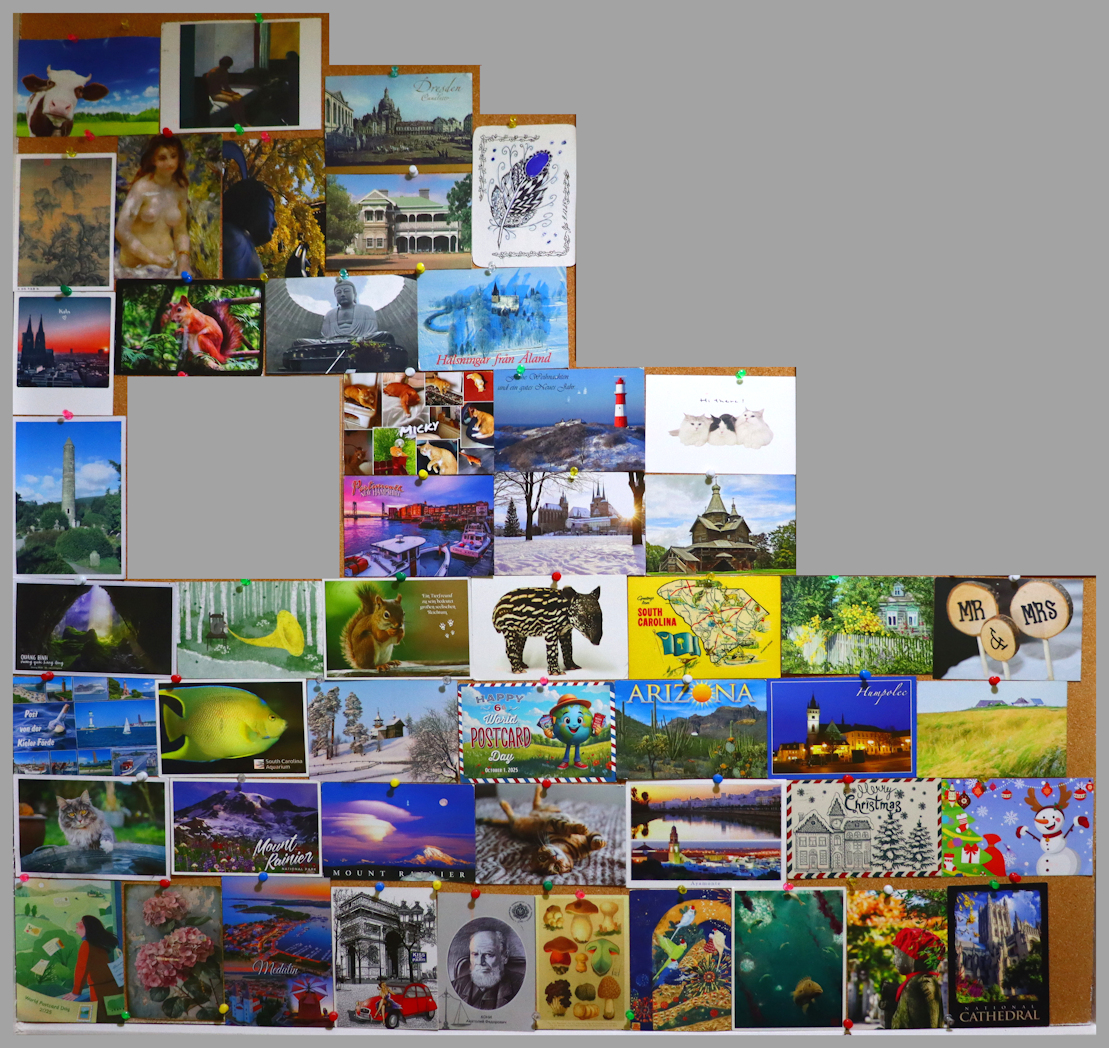 I was wondering if I would manage to complete the board before Christmas, but I had expected it to be a bit more finely judged than this.
I was wondering if I would manage to complete the board before Christmas, but I had expected it to be a bit more finely judged than this.
Sunday 21
This evening we had roast half shoulder of lamb which we’d had sitting in the freezer for a while. And guess what? All three cats came along for a share! None had a lot, just two or three morsels – just a little taster so we’re sure that the humans have been out hunting for us.
Tuesday 23
We saw the gardener today. He was livid with his GP and his specialists – and rightly. They demand this that and the other tests, scans etc.; don’t explain why; and don’t tell him the results without him demanding. Oh and they don’t talk to each other either; but when they do they don’t read the correspondence; and he’s left as a channel for information – especially as he’s caught between three different health authorities! I had to remind him that (a) it is his body and his results so he is entitled to know and should be told; (b) if they can’t provide a good reason for a test (like he has a symptom of something) then he is entitled to refuse to go along with it (you’re entitled to decline anyway); and (c) his GP is the one who retains overall responsibility for his total healthcare. Admittedly I have only his word for all this, but it looks like a classic example of how not to care for your patient. Some body(s) need the application of an Exocet suppository.
Wednesday 24
Last evening we had a small amount of mashed potato left over, which we knew we’d not use in the next couple of days. So with some scraps it was put out for the fox. This morning, everything had disappeared. Who knew that foxes like mashed potato? I’m always surprised at the things the foxes will eat – like digestive biscuits! But we do know that cats like prawns; so needless to say our three felines helped this evening with our prawns. Sorry, foxes, you didn’t get a chance.
Thursday 25
Christmas Day, and what a glorious sunny morning with not a cloud in the sky – but breezy and chilly. An Alpine day, except there’s no snow. And it has been deathly quiet here all day.
Friday 26
Boxing Day, and still the commercial world are pushing out routine emails. Yesterday (Christmas Day!) and today I’ve had four emails about our bank accounts, several about upcoming auctions, and at least one reminding me of an upcoming subscription renewal, plus a number of others. All could have waited until Monday.
Sunday 28
This afternoon I unloaded the last two weeks photographs from the trail cameras to find a couple of super shots.
First there was one from 19/12 of the fox going over the 6ft fence to next door, with apparently no effort.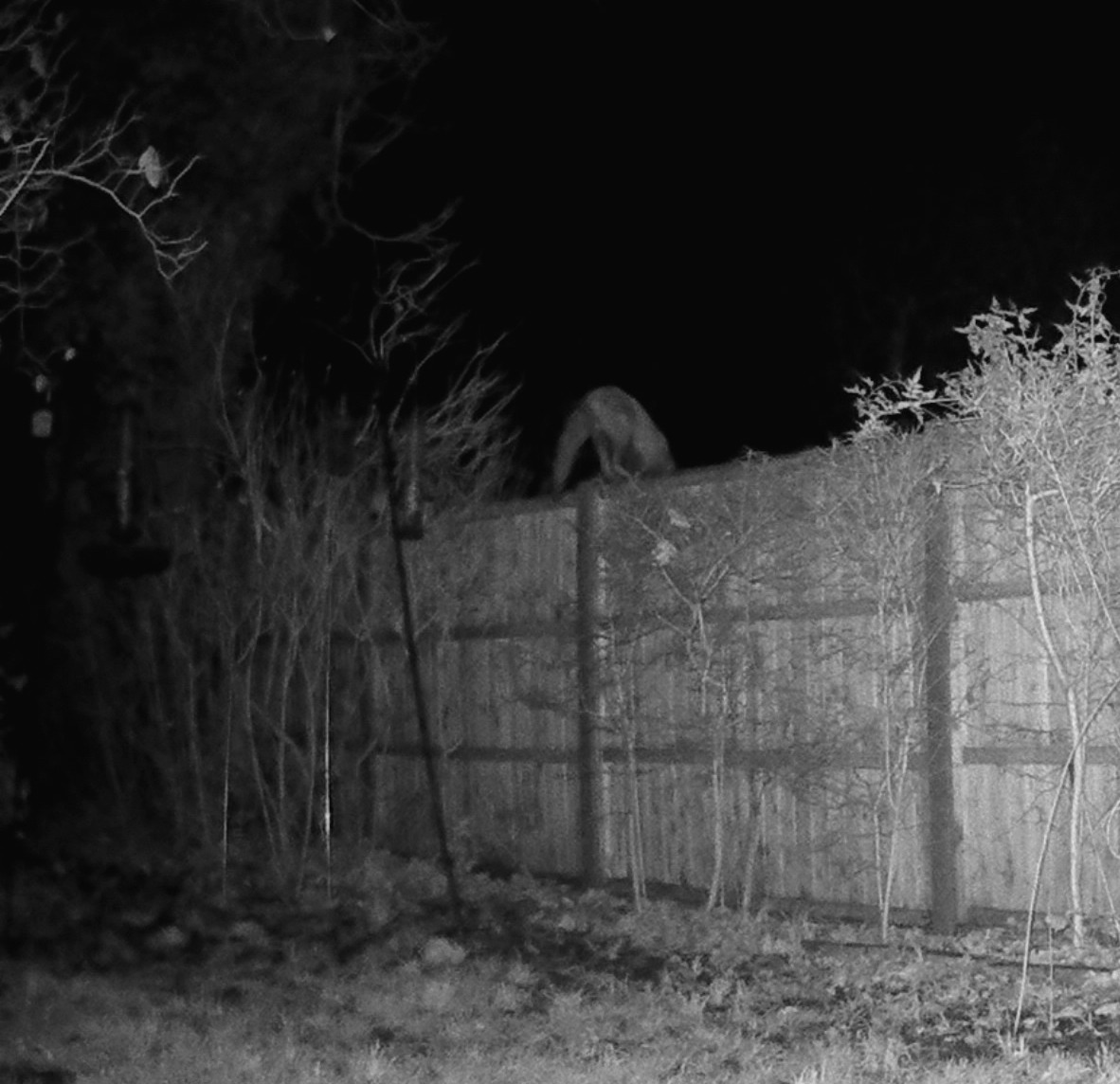 The thing is that the guy next door probably thinks that the fox can’t manage his fence.
The thing is that the guy next door probably thinks that the fox can’t manage his fence.
Then in the small hours of Christmas morning something I’ve not seen before: two foxes having a jousting match (probably over territory).
Tuesday 30
“It was that prolonged, flat, cheerless week that follows Christmas … those latter days of the dying year create an interval, as it were, of moral suspension: one form of life already passed away before another has had time to assert some new, endemic characteristic. Imminent change of direction is for some reason often foreshadowed by such colourless patches of time.”
[Anthony Powell; The Acceptance World]
Wednesday 31
So the old year ends with a bright, sunny, but cold day. Which makes a refreshing change from the rest of this dismal year. Hopefully it’s a good omen for 2026 – I certainly hope so! As usual I’m not making New Year Resolutions as I view them as self-defeating ordinances, but that doesn’t mean I won’t be trying to tweak and enhance things. I’d love to be able to start with killing the depression. Perhaps I need to invest in a few sacrificial Gadarene Swine.
Let’s see if we really can make it better than 2025!






